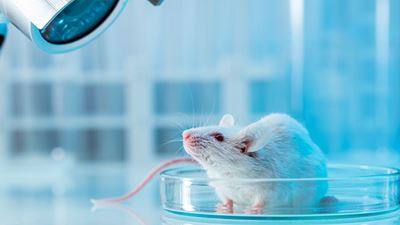This surely is a question that has raised many debates over the last few decades.
Animal experiments are extensively used to develop new medicines and test the safety of new drugs and products. Most of these experiments cause pain to the animals and shorten their life. This is why animal testing is morally and ethically wrong.
Everyone, especially animal experimenters, are aware of this ethical problem and try to reduce to a minimum the pain caused and to make the experiments as humane as possible.
Every year about 20 millions animals are tested on and killed, and almost 8 millions are subjected to painful procedures without painkillers.
The criticism raised by animal rights defenders who fight for restrictions in the use of animals in scientific research, is accompanied by a growing concern for the future of scientific progress. This, in the last years has become a matter for public debate.
Regarding this issue, society is pretty much divided into two groups.
The ones who argue for the continuation of painful experimentation state that we have an obligation to act in a way that will maximise benefits and minimise harm, and that stopping the experiments would have harmful consequences to society.
They sustain that the benefits to human lives outweigh the suffering animals have to endure,and that the value of their lives doesn’t count as much as the value of human life.
In their opinion, humans have much higher developed capacities and sensibilities, and so their welfare counts more.
This is where animal rights advocates disagree and state that the lives of all creatures, great and small, have value and are worthy of respect. This right to be treated with respect does not depend on an ability to reason. An insane person has a right to be treated with respect, yet he or she may not be able to act rationally. Nor does a right to be treated with respect depend on being a member of a certain species. Restricting respect for life to a certain species means performing an injustice similar to racism or sexism. Those who support painful experimentation on animals assume that respect for other species does not count as much as respect for members of his or her own species. “Speciesism” is as arbitrarily unjust as racism or sexism.
Yet animals’ rights are violated when they are used in research because they are not given a choice. Animal testing should be stopped because it violates the basis of moral rights and principles and any action that causes pain to another creature in simply not permittable.
Nowadays, animal testing is still allowed, but scientists are incouraged to follow “the three R’s”, which are: reduction, Refinement and Replacement.
They should reduce the number of animals used in experiments by improving techniques, data analysis and by sharing information.
They should refine the way animals are cared for by using less invasive procedures and better their medical care and living conditions.
They should replace experiments on animals when there is an alternative such as cell cultures, computer models,epidemiological studies or human volunteers.
